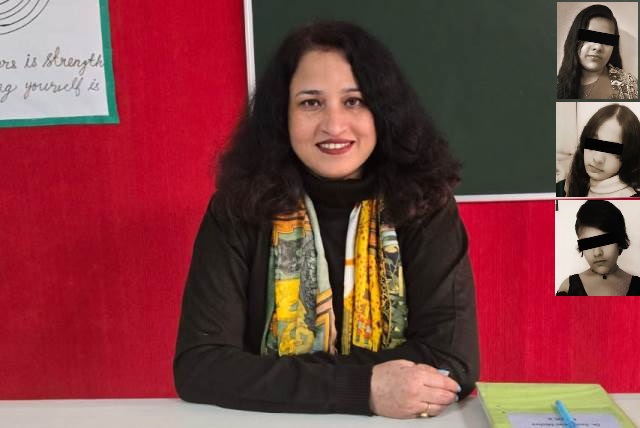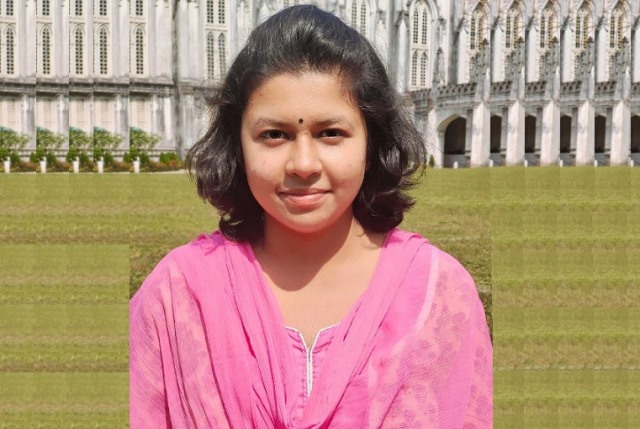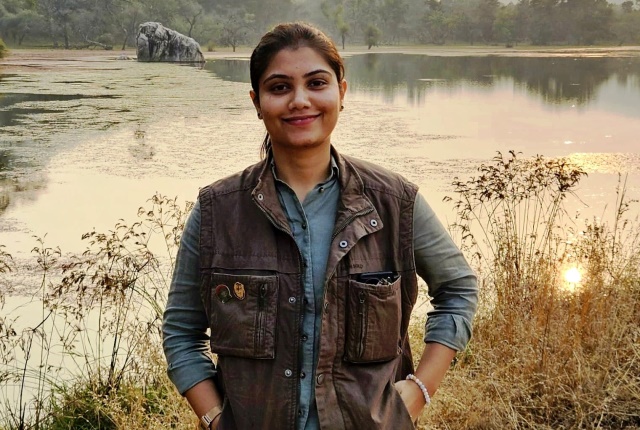#Toxic Air I – ‘Dust, Pollution Part Of Life’
paan-gutkha shops here in Deoghar (Jharkhand) on my way home in the evening.
My friends and I laugh wryly every time I see privileged people on television talking about how badly their countrymen are affected by air pollution. They sound like a joke. Do people sitting in those shining studios ever spare a thought about people like us? I am a construction worker and I too am forced to make peace with toxic air, even though my exposure to air pollution is much more prolonged than any of the experts or politicians sitting and making idle talk in television studios.
My day starts early in the morning as I start walking on dusty kaccha roads waiting for a ride to come by. If I am lucky, I get to hang on the sides of buses or sawari autos. On rare occasions, I am able to get a seat. But then the co-passengers cringe with disgust. Who would want a dirt-laden labourer sitting next to him/her? People talk about air pollution in Delhi and other big cities, but the truth is that it’s a national problem.
The air in villages and small towns is equally bad. Smog is probably not visible here but the amount of construction happening in this town is insane. A new building is being constructed after every 50 metres or so. Every time a lorry unloads bajri (red sand) or reta (sand), it is impossible to breath. My job is to lift soil, bricks, sand and small stones used for construction, for nearly eight to nine hours. I first have to dig the soil, or sieve the sand or arrange the bricks before I can start carrying the load.
In short, I am in close contact with dust particles throughout the day. My load can go up to as much as 40 kilograms at a time. Add to it, the pollutants from industries, coal plants, vehicles and stubble burning. And I have more breathing issues than the grandparents in family! Sometimes I have a lot of difficulty in breathing and it becomes worse during winters.
Breathing isn’t the only issue. Take a look at my hands. The skin has got dry and flaky; sand and other dust particles clog my skin pores and make my skin burn. My hands were not like this when I started to work at sites. My friends, who work as labourers in Delhi, sometimes get masks to cover their faces while working. They told me that being the capital city, many NGOs actively conduct regular health check-ups of construction workers, and distribute masks.
Sadly that is not the case in small towns. Here if you fall ill, you have to ignore it and keep working. Labourers, who work for hotel projects are slightly better off. At least they take care of the working conditions of the labourers. But things are bad, where I work. They use huge machinery. We are surrounded by big vehicles such as JCB machines, tube-well boring machines, and road rollers that keep plying at the construction site– the dust never settles.
I understand this is part and parcel of the vocation I have chosen for myself, but if the construction pace was a little slower, perhaps we could get a little space, where we could take little breaks to sit and relax. We do not even have masks to shield us from the pollution, my red gamcha is the only protection I have. To add to our woes, we mostly live in the poverty-ridden localities, where water shortage is often a problem. As a result we do not even get to clean ourselves properly after having been exposed dust and other pollutants.
Indiscriminate dumping of garbage is also a problem in our locality. We live in a haven for infections and the pollution makes us more prone to them. Cold, cough, running noses, burning eyes and headaches have become a part of my life. The situation is worse for female construction workers and older labourers. We earn around Rs 300-400 per day and we cannot afford to spend money on medication. We just pick ourselves up and march on. *(This is a fictitious name. The construction worker was just not interested in identifying himself despite frequent requests. All he wanted was his sufferings be known to others)



